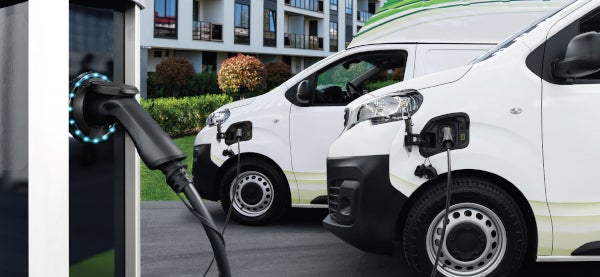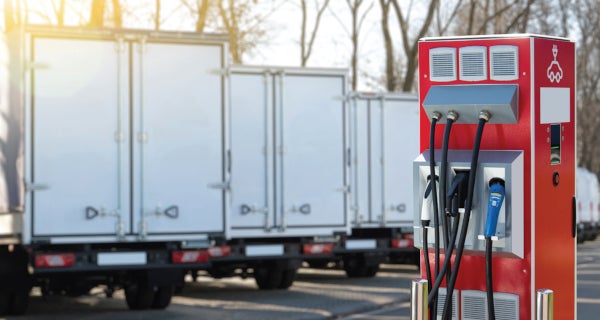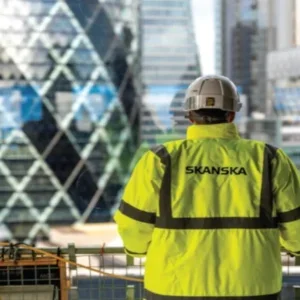
Wherever you look, environmentalism is unavoidable. This is the case not only for commercial enterprises – its presence is ubiquitous in almost all facets of everyday life, as a greater eco-consciousness takes root in the global fight against climate change. For instance, the Google Maps app now provides users with the option to take greener routes, handily marked with a green leaf motif. Journeys are calculated to speed up trips while simultaneously reducing emissions and cutting fuel bills for drivers. In an increasingly perilous economic climate, where energy crises are affecting many across the globe, such initiatives could be a boon for people who have rising fears about fuel poverty.
Look beyond apps, however, and even pop culture has embraced the green trend, with heavy-hitting video game studios like Kojima Productions developing blockbuster titles such as Death Stranding, where the player takes on the role of a courier who has to take advantage of technologies such as solar power generators and electric vehicles to make precarious deliveries in a dystopian future. If anything, this step into the mainstream shows how embedded renewable energies are in the wider public consciousness – rather than this simply being a niche subject for environmentalists.

But this is not simply a case of just being ‘trendy’ – rather, electrification is increasingly being viewed as an unavoidable necessity, and one that will, in all likelihood, be subject to organic growth even in the absence – or, indeed, weakness – of government intervention and regulation. That, in turn, will encourage even greater electrification in both the public and private business domains. This is perhaps best exemplified by specific segments of the private sector rapidly taking matters into their own hands, and embarking on their own green journeys. In doing so, they are enhancing their corporate social responsibility (CSR) and environmental, social and corporate governance (ESG) credentials while simultaneously doing more to reduce the impact of combustion engines on our planet. According to recent research by ESG risk management provider Alcumus, this is reflected in the fact that 67% of companies across the UK, US and Canada are investing in systems to make ESG progress measurable.
Regulatory need, or responsible business?
But just how ‘top-down’ has this drive to a greener future been in terms of government mandates and regulations? Is corporate adoption of eco-friendly trends a result of state intervention? Or are increasing numbers of companies ‘seeing the light’ and placing the planet ahead of profits for purely altruistic reasons? The UK government has set ambitious targets for its Net Zero Strategy, which flies under the banner of twin ‘Build Back Greener’ and ‘Green Industrial Revolution’ slogans. The UK was the first major economy to embrace a legal obligation to achieve net zero carbon emissions by 2050, passing laws in 2019 that committed the British government to these ambitious goals. In 2021, the plan was updated by then-Prime Minister Boris Johnson to a ten-point scheme for achieving net zero, with point four of that plan dedicated to accelerating the shift to zero emission vehicles.

“As far as heavy goods go, electrification isn’t quite there yet to give you the range and payloads that you actually need.”
David Landy
37%
The percentage of Evri’s van fleet that runs on electricity.
Evri
Point four of the plan also commits the UK to ending the sale of new petrol and diesel cars and vans by 2030, which is a whole decade earlier than initially planned. While production will cease from 2030, sales of such vehicles would continue until 2035, and the government earmarked a £2.8bn support package to promote the production and manufacture of electric vehicles (EVs). A further £1.3bn has also been set aside to produce and accelerate the roll out of charging infrastructure, with rapid charge points planned on motorways and major roads to make it easier to plan for long journeys.
However, not all companies were willing to wait for the government’s deadlines. Elaine Pringle, fleet manager of customer vehicles at Scottish Water, says her company is way ahead of the curve when it comes to adopting EVs. “We have set bold targets, ahead of the UK government’s deadlines,” Pringle explains. “These targets are aligned with the Scottish government’s ‘Programme for Scotland’ targets for public sector fleets.” As Pringle says, these include a ban on petrol and diesel cars by 2025, and the abandonment of polluting HGVs by 2030.

This sentiment of getting ahead of the green game has been echoed by other large British companies too. According to David Landy, head of fleet at the UK’s biggest parcel delivery company, Evri, there was no legal requirement for his company to adopt greener fleets and EVs. Rather, he says, this was more of a cultural shift within Evri itself, starting with their ParcelShop network – places where customers can send, collect and return parcels as easily as if they were going to their local corner shops.
“First and foremost, there was no legal obligation to go electric,” Landy explains. “It was purely Evri wanting to start its low carbon journey. We’ve electrified vans within our ParcelShop network, and this is in the 3.5 tonne range. We also have 450 vans of our own that sit within that same community of vehicles, 168 of which are electric.”
With almost two-fifths of Evri’s urban delivery vehicles responsible for operating more local urban routes now running on electricity, that is a considerable commitment to reducing the company’s emissions. But why not take the plunge and electrify the entire fleet? The answer, Landy says, is because there’s no sensible “big bang” option for most corporate needs.
“In order to achieve our target to remove all petrol and diesel cars from our fleet by 2025, we moved to an EV only car policy in 2021.”
Elaine Pringle
£2.8bn
The UK government support package for EVs.
UK Government
“It’s kind of like a gradual phase out,” Landy explains, drawing attention to his company’s deal with Mercedes-Benz to purchase a blend of diesel-powered vehicles as well as EVs, with the diesel vehicles phased out as new EVs and the next generation of technology become available. “To go big bang would be very challenging,” he stresses.
Scottish Water, on the other hand, is on track to meet their extremely ambitious 2025 targets. “In order to achieve our target to remove all petrol and diesel cars from our fleet by 2025, we moved to an EV only car policy in 2021,” Pringle says. “We also implemented an EV salary sacrifice scheme to provide employees with an option to forgo part of their gross salary in exchange for a new electric lease car: the monthly rental value is taken before tax and national insurance, making electric vehicles more accessible and affordable. This will help to reduce Scope 3 emissions,” Pringle adds, in reference to the emissions indirectly generated through a firm’s supply chain.
Long wait for heavy freight?
All the same, there is clearly a world of difference between smaller EVs, such as cars and vans, and the types of heavy goods vehicles (HGVs) required for longer distance trucking. According to a 2017 white paper on zero-emission heavy-duty vehicles, published by the International Council on Clean Transportation, decarbonising the freight sector would require “sustained and extensive infrastructure investments by government and industry”.

And that makes sense. The kind of battery sizes and hydrogen fuel cells required to power such gargantuan vehicles, as well as to shift their loads, are not technologies that are either accessible or cheap. Companies looking to electrify their HGV fleets are therefore likely going to have to wait until the technology becomes more widely available and fits their economic models.
In the meantime, Evri has been relying on biomethane for its heavy goods fleet, with over half of their tractor units running on the fuel – a number that Landy says was doubled last year. “As far as heavy goods go, electrification isn’t quite there yet to give you the range and payloads that you actually need,” he explains. “We think biomethane is going to be good for a few years yet, and then that would be our stepping stone to whatever the [EV] technology will be.”
Looking to the future, Evri expects that the technologies involved in HGV fleet electrification will likely be based on hydrogen fuel cell technology, and, for that reason, sees a big role for private capital to play a part – as well as scope for government intervention. “I think that we all see that private investment will be what generates the infrastructure,” Landy says. “But I would like to see some government intervention give a proper kickstart to this. However, I think we will get there under our own steam [without government assistance].”
While the technology to move away from biomethane may not be there just yet, HGV electrification is not being ignored, and indeed is being actively tackled by numerous manufacturers. That includes trailblazing EV giants like Tesla, which introduced a concept for a Class 8 heavy goods vehicle in 2017. While the so-called Tesla Semi has yet to go into mass production, it is surely only a matter of time before the technology, government encouragement and private sector will all synergise to create a greener, zero carbon emission future for all.






